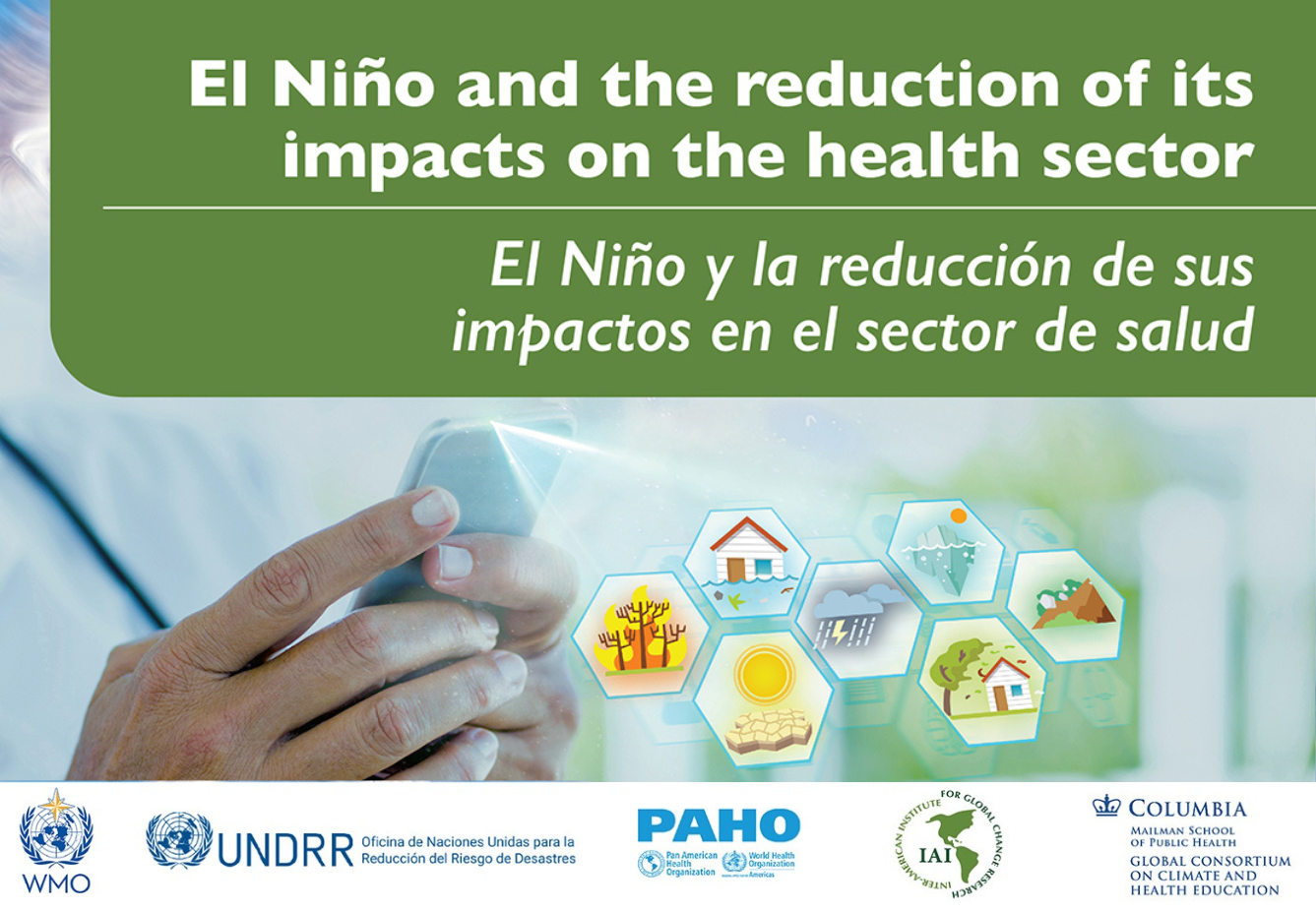Webinar El Niño and its Impacts on the Health Sector convenes experts from the region

On October 5th, an important international seminar took place with the participation of more than 400 individuals interested in understanding the potential effects of the El Niño-Southern Oscillation (ENSO) in the tropical Pacific. This event, jointly organized by the World Meteorological Organization (WMO), the United Nations Office for Disaster Risk Reduction (UNDRR), the Pan American Health Organization (PAHO), the Global Consortium on Climate and Health Education (GCCHE), and the Inter-American Institute for Global Change Research (IAI), brought together distinguished experts from the region.
The day began with opening remarks from Mr. Andrés Orias, Programs Officer of the Regional Office for the Americas at WMO, Dr. Anna Stewart-Ibarra, Executive Director of IAI, and Dr. Daniel Buss, Head of the Climate Change and Environmental Determinants of Health Unit at PAHO, who emphasized the importance of addressing challenges related to El Niño and its influence on public health.
Dr. José Gálvez, representing the National Oceanic and Atmospheric Administration (NOAA), provided an overview of the current conditions of El Niño and quarterly outlooks for the Americas and the Caribbean. He stressed the need to understand and anticipate these climatic phenomena to take effective measures in the health sector.
Dr. Daniel Buss from PAHO focused on the prevention and response to specific health impacts, highlighting the provision of appropriate healthcare services during extreme weather events.
The seminar also showcased examples of good adaptation and response practices. Dr. Paulo Ortíz from the Cuban Meteorological Institute shared information on products and services developed to address these challenges.
Dr. Laura Lee Boodram from the Caribbean Public Health Agency (CARPHA) shared her expertise on integrated early warning systems related to vector-borne diseases, providing examples of actions for adaptation and response in this critical area.
Finally, Mr. Francisco Chesini from the Ministry of Health of Argentina elaborated on the use of evidence, early alerts, and health monitoring related to extreme temperatures in Argentina, emphasizing the importance of monitoring and responding to these events.
The seminar concluded with remarks from Mr. Nahuel Arenas, Head of the Regional Office for the Americas and the Caribbean at UNDRR, and Dr. Cecilia Sorensen, Director of the Global Consortium on Climate and Health Education, who highlighted the need to continue collaborating in the region to address health challenges related to El Niño and climate change.
Participants had a valuable opportunity to become acquainted with advancements in knowledge and experiences in combating the impacts of the El Niño phenomenon on health, reinforcing regional collaboration in the pursuit of effective solutions.
Watch the recording and download the presentations Video Recording | Supporting Materials
__________
If you are looking to share information of relevance to the IAI community, please send it to communication@dir.iai.int to be disseminated in social networks and other media.
Don't forget to subscribe to our newsletter here to keep informed.
